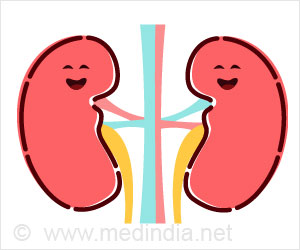The hormone Oxytocin has been lovingly referred to as the ‘cuddle chemical’ or the ‘love drug.’ But it now plays a dubious role in promoting prostitution.

The hormone Oxytocin has been lovingly referred to as the ‘cuddle hormone’, ‘feel-good chemical’ or the ‘love drug,’ due to its several magnificent qualities. But sadly this nature’s wonder has been dragged into the limelight for dubious reasons.
Prostitution is a familial occupation in the backward villages of Sodavas and Girvas located in the Alwar region of Rajasthan in north- west India ; therefore, it is very common for most women here to be engaged in the ancient trade.
But it began to be brought to public attention that hundreds of little girls, even as young as 6 months to ten years, are being regularly kidnapped from across the length and breadth of India to be brought to these villages, and forced to ‘grow up quickly’ so that they may enter the ‘traditional trade’ of the region and rope in the moolah.
These children are given unregulated doses of the hormone Oxytocin by the villagers to hasten sexual maturity so that they can be pushed into prostitution in Mumbai or sent to the Gulf, at the earliest.
These girls are injected with veterinary oxytocin because this hormone variant is more potent than that meant for humans. Besides, veterinary oxytocin is also readily available over the counter under the code name of ‘Goli number 10.’ It must be noted that the villagers in this region do not indulge in cattle farming or agriculture to warrant the presence of these drugs at the chemists shop!
When injected with this drug, pre- teens ‘blossom’ and begin to resemble teens. They also become trusting and more sexually charged - traits that are essential for their compliance.
Oxytocin has long been used by dishonest milkmen to boost milk yield in cows and buffaloes and also by farmers who inject it into vegetables to make them grow faster and bigger.
Oxytocin is a mammalian hormone secreted by the hypothalamus of the brain. It is also secreted by tissues of the ovaries and testes and acts as a neurotransmitter in the brain. It brings about hormonal changes and the responses to the hormone is markedly increased in women than in men.
Traditionally Oxytocin prepares a woman for childbirth and breast feeding.
Oxytocin facilitates the release of dopamine, which is responsible for a feeling of wellness, excitement, and bonding. The levels of oxytocin surge stupendously during acts of intimacy and orgasm, paving way for adult emotional bonding. The hormone is believed to have evolved as a tool to reduce stress and fear of another person in order to facilitate contact and procreation.
Oxytocin evidently plays a vital role in bonding not just in humans but in animals too. Although the intricate biochemical reactions need to be clearly elucidated, it is clear that oxytocin interacts with other hormones associated with pleasure and social behavior to bring about its final effect.
Recent Research
Various studies have effectively contributed to the growing list of oxytocin benefits. It has been understood that this wonderful hormone promotes positive qualities such as empathy and generosity and ensures emotional bonding in close relationships.
Researchers in the UK and Germany have discovered that when oxytocin is administered to men in the form of a nasal spray they become more empathetic and caring—traits usually associated with women. This is probably what women have been waiting for eons –to instill sensitivity in uncaring partners!
Research has also shown that oxytocin contributes to social memoryand helps us to initiate and establish a preference for people we like, by remembering their faces, and differentiating them from those we dislike.
The hormone is known to promote bonding between mothers and newborns. However no research has revealed that it helps to make the mothers that much more endearing to their offspring.
Scientists speculate that the “love hormone” may play a significant role in the higher levels of depression and interpersonal stress commonly observed in women, who are twice as often affected as men. It is hoped that future research will throw more light on the effect of oxytocin on human psychiatry and whether it plays a role in controlling emotional and sexual behavior.
Distress Call
High, unregulated doses of Oxytocin has several side effects on the body. It causes hormonal changes, affects the centre nervous system and can cause seizures.
Needless to say, such unscrupulous acts, as mentioned above, will have devastating psychological effects on the victims.
It is indeed a pity that the cuddle chemical, which helped women to build familial bonds, has been put to use in this loathsome manner, to disrupt families and scar women for life.
Lets hope that the powers that be, which are currently in a denial mode, wake up before the face of India is further tarnished and more damage is done!
Source-Medindia
Dr Reeja Tharu/S









